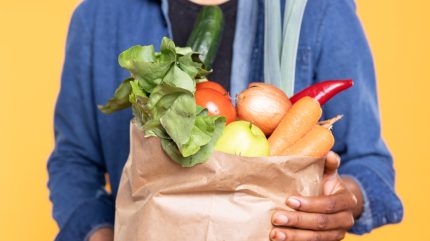
UK consumers have been shaken by rising inflation, with the latest BRC‑Opinium survey showing a sharp drop in consumer confidence as living costs climb.
The data points to growing concern among households over the economy and personal finances.

Discover B2B Marketing That Performs
Combine business intelligence and editorial excellence to reach engaged professionals across 36 leading media platforms.
Economy outlook darkens as inflation bites
Consumer expectations for the UK economy over the next three months fell further—to –33 in July from –28 in June—and personal financial outlook slipped to –7 from –5.
BRC chief executive Helen Dickinson said the decline in confidence was unsurprising: “With the UK economy shrinking for the second consecutive month, … rising inflation, particularly for food, has put more pressure on personal finances”.
This sentiment matches ONS figures showing inflation at 3.6% in June, with food and non‑alcoholic drinks rising 4.5% year‑on‑year.
Grocery prices fuel cautious spending
Despite falling confidence, consumers expect to spend more on groceries—retail spending sentiment nudged up to +3 from +2, with overall spending expectations rising to +16.

US Tariffs are shifting - will you react or anticipate?
Don’t let policy changes catch you off guard. Stay proactive with real-time data and expert analysis.
By GlobalDataKris Hamer, BRC’s director of insight, remarked that food inflation has reached its highest level since early last year, driven by rising costs of bills and business expenses.
Grocery bills are projected to increase by around £275 annually, squeezing household budgets further.
Retail inflation shakes high street resilience
Retail inflation has persisted for nine months, in part due to rising employment costs following the Chancellor’s budget, said Dickinson.
She warned that further tax increases could deepen inflation, suggesting business rates reform must ensure no store ends up worse off.
Reuters recently reported UK retail spending rose 3.1% in June, largely driven by food inflation—the sharpest increase since March 2024—while non‑food sales lagged.
That underlines how inflation, rather than stronger consumer demand, is propelling overall spending figures in the short term.
Background: inflation and economic squeeze
UK inflation, currently above the Bank of England’s 2% target, has been driven by higher food, energy and wage‑related costs.
Economists warn that while interest rate cuts may help in 2026, households remain under pressure. Spending on essentials continues to rise as discretionary spending remains subdued.
With food prices leading inflation and consumer confidence weakening, retailers face a delicate balancing act. Competitive pricing strategies may help, but persistent cost pressures risk dampening demand.
As government considers reforms, the retail sector is urging protections for both consumers and high‑street businesses in the months ahead.



